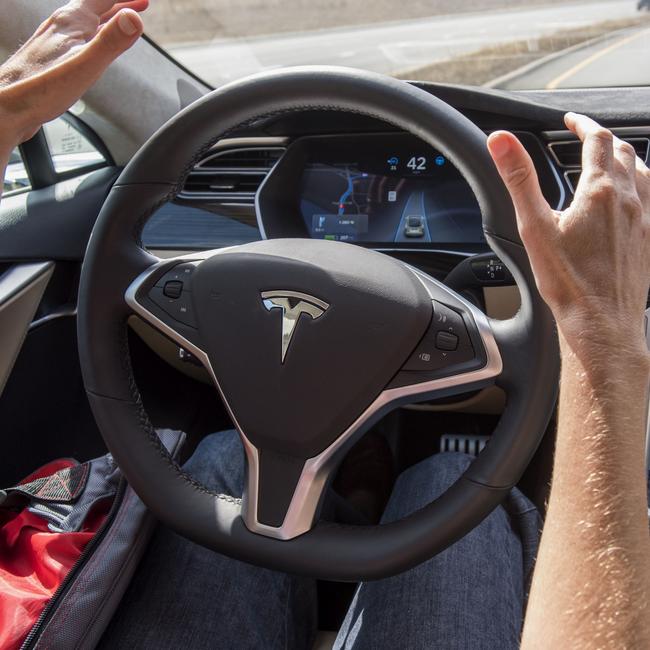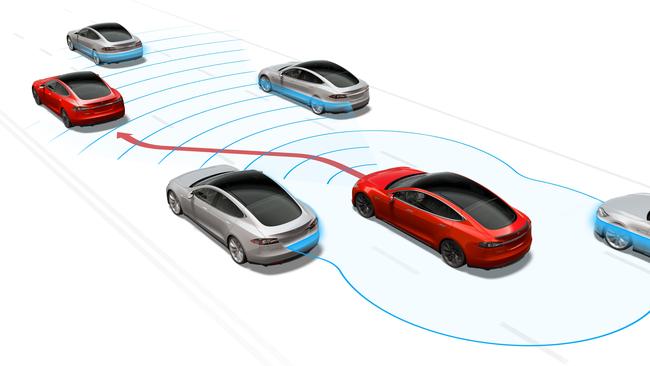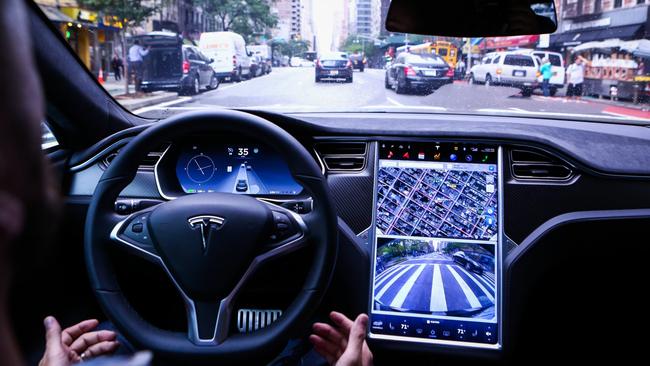Elon Musk defends Tesla Autopilot name after German court ruling
The tech billionaire’s electric car company Tesla has been promoting its self-driving cars for years. But now it’s hit a major snag.
Hitech
Don't miss out on the headlines from Hitech. Followed categories will be added to My News.
Tesla founder Elon Musk has questioned a German court’s decision that will mean his company probably has to change the name of its semi-autonomous driving technology.
The court’s decision means Germany can ban Tesla using the name “Autopilot” to describe a feature in Tesla cars that maintains speed and lane position automatically.
In a case brought by a German organisation focusing on industrial anti-competitor practices called the Wettbewerbszentrale, a court in Munich ruled that calling the feature autopilot exaggerated its capabilities.
RELATED: Tesla fooled by piece of tape

RELATED: Tesla boss takes off in new ute
“In the board’s opinion, both the advertising message as a whole and the components separately attacked by the plaintiff are misleading commercial acts … Because the use of the relevant terms and formulations arouses a notion that is inconsistent with the actual circumstances among the relevant public – in this case, the average consumer,” the court ruled.
But Elon Musk reckons the court got it wrong.
“Tesla autopilot was literally named after the term used in aviation,” Musk responded to a person who tweeted a screenshot of the Wikipedia entry for autopilot.
Tesla Autopilot was literally named after the term used in aviation. Also, what about Autobahn!?
— Elon Musk (@elonmusk) July 14, 2020
RELATED: Senator calls for Autopilot name change
RELATED: Tesla tantrum caught on camera
“Autopilot does not replace human operators. Instead, autopilot assists the operator’s control of the vehicle, allowing the operator to focus on broader aspects of operations”, reads the crowdsourced encyclopaedia, which courts have previously ruled inadmissable.
While its name and features are consistent with the similar technology used for air travel, given a Tesla car is more readily available to “the average consumer” than a jet plane, the court applied different standards.

The name of the feature, combined with claims made on the company’s website, was enough for the court to rule Tesla misled customers.
“The core of the dispute was the description of the driver assistance system with which the defendant equips their vehicles as standard as “autopilot” and the application of individual components that can be booked separately under the heading ‘Full potential for autonomous driving’,” the Bavarian Ministry of Justice said in a translated press release.
Tesla makes it clear to drivers that they still need to keep control of the vehicle, which the court noted was included at the end of a website advertising the Tesla Model 3, but was not displayed prominently enough.
“The information provided by the defendant at the end of the website does not remedy the misleading lack of clarity and transparency.
“By using the term ‘autopilot’ and other wording, the defendant suggests that their vehicles are technically able to drive completely autonomously,” the court said, noting that not only is that not true of Tesla’s cars, it’s also not legal in Germany.

The judgement is not final but Tesla is yet to announce whether it will appeal.
While Tesla has been trying to carve off some of the luxury car market that has previously been dominated primarily by German manufacturers, Germany isn’t the only country to raise questions over autopilot.
Its home country has also raised concerns over the Tesla feature.
The US’ National Transportation Safety Board has been investigating semi-autonomous driving features in some modern cars, but Tesla has been less than responsive.
Originally published as Elon Musk defends Tesla Autopilot name after German court ruling
